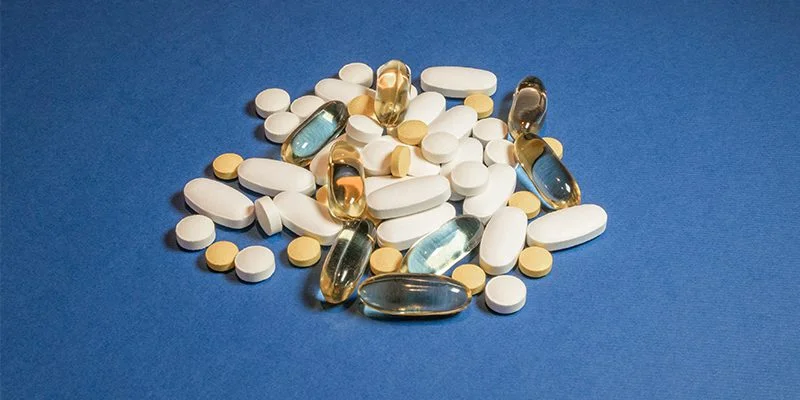A Daily MultiVitamin Is Only Half The Answer
Undoubtedly, you know that vitamins and minerals are good for your health. But do you really know what to make of the alphabet listed on your supplement bottle? Just what is the difference between vitamins and minerals and are they really necessary?
Vitamins and minerals are equally essential for a healthy body. However, they differ in their chemical composition, biological function and nutritional requirements. They are considered micronutrients which means that they are needed by the body in small amounts. Yet failing to get even those small quantities virtually guarantees problems.
Differences in Chemical composition
Vitamins are organic compounds, which means that they are obtained from living organisms: animals, plants or substances that were once alive, while minerals are inorganic. Minerals have a much simpler chemical composition compared to vitamins. While vitamins are obtained from plants and animals, your body gets minerals from soil and water.
Categories of Vitamins and Minerals
Derived from two words, vita meaning life and amine meaning containing nitrogen, vitamins are either water-soluble or fat-soluble.
Water-soluble vitamins (vitamin C and the 8 B vitamins) are absorbed directly into the bloodstream during digestion of your food or while a supplement you take dissolves. Your kidneys continuously regulate levels of water-soluble vitamins, moving excesses out of the body in your urine.
Generally, the body does not store water-soluble vitamins so they need to be regularly replenished. However, contrary to popular belief, some water-soluble vitamins can stay in the body for long periods of time. You probably have several years’ supply of vitamin B12 in your liver. And even folic acid and vitamin C stores can last more than a couple of days.
Conversely, fat-soluble vitamins (vitamins A, D, E, and K) get dissolved and stored in the body’s fat cells. Because fat-soluble vitamins are stored in your body for long periods, toxic levels can build up.
Minerals are divided into major minerals and trace minerals. Trace minerals are needed by the body in small quantities while major minerals are needed in large amounts.
Nutritional Requirements
While all 13 vitamins are needed for the body, all minerals are not needed. Even though there are thousands of known minerals, only about 20 minerals are considered to be essential to your body. Some of the necessary minerals are calcium, magnesium, zinc, iodine, sodium, copper, selenium, fluoride, chromium, iron, sulphur, manganese, potassium, and phosphorus.
Vitamins are easily destroyed by heat, light, exposure, chemical agents, and long storage. Therefore, extra attention is needed while preparing food or storing it.
Minerals on the other hand, are not as vulnerable to heat, chemical reactions, or sunlight. However, mineral loss can occur when they bind to other substances. For example, when there is excess sodium in the body, calcium latches on and is excreted along with the excess sodium, thereby reducing the amount of calcium available in the body.
Biological Role
Vitamins help promote and regulate chemical reactions and processes in body cells. They produce red blood cells and help maintain nervous, skeletal, and immune systems. They also act as antioxidants which help in fighting disease.
Minerals help in bone and tooth formation, blood coagulation, neural conductivity, muscle contraction, maintenance of normal heart rhythms, and assist in keeping acid-alkaline balance in your body.
Health Benefits
When you don’t get enough of a certain vitamin or mineral, you may become deficient. Vitamin and/or mineral deficiency can cause health problems and may increase your risk of heart disease, cancer, and osteoporosis. Getting the right amount of vitamins and minerals can help boost your immunity and maintain optimal health.
In a world where foods are less nutrient-rich and environmental toxins are pervasive, we are often deficient in key vitamins and minerals that make our brains and bodies work well. Supplementing your diet with high quality, naturally derived nutrients can powerfully promote healing, support bodily functions and boost brain health.
BrainMD’s NeuroVite Plus provides a vast range of vitamins and minerals in their most active forms, combined with three of Dr. Amen’s hand-selected proprietary high-nutrient blends.
“NeuroVite Plus helps us mind the gap of any nutritional vulnerabilities we may have. I take it and recommend it to all my patients.” – Daniel G. Amen, MD
- Veterans Day: One Warrior Shares Some of the Best Ways to Heal from Trauma - November 2, 2023
- Could Your Mood Issues Be Linked to a Pain In the Neck? - October 13, 2023
- What’s At the Root of Your Sciatic Nerve Pain? - September 20, 2023




whats most bioavailable source of tumeric
“Turmeric” refers to turmeric root, which has low amounts of curcuminoids that are not hardly absorbed. If you’re referring to the curcuminoids concentrated from turmeric root (called “curcumins”), there are numerous preparations that claim to have better bioavailability than others. Our Chief Science Officer Dr. Parris Kidd is an expert on curcuminoids and strongly recommends that you look for a curcumin preparation that has been clinically proven to help your specific problem, beyond just claiming to be bioavailable. He developed the Brain Curcumins product for BrainMD, using the Longvida preparation developed at UCLA. In a clinical trial this specific preparation was found to improve attention, memory and mood while coping with a stressful mental challenge. Dr. Kidd continues to monitor the research on all bioavailable curcumins for their brain benefits.
I liked that you said that one reason to consider using a supplement bottle is that vitamins and minerals are crucial to your health. I have been thinking about getting healthier but I haven’t been sure how to complete this process. I will be sure to consider getting a supplement bottle so that I can remember to take my vitamins.
Thank You for your information.